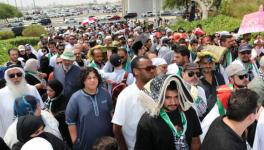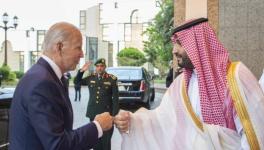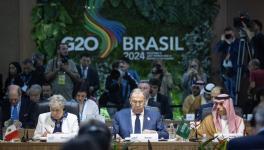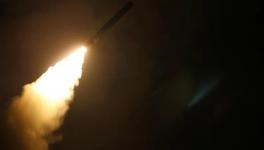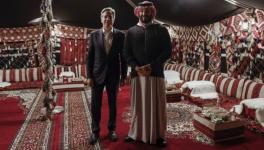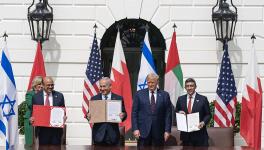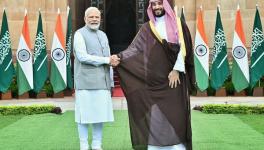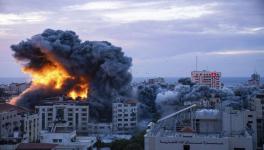The Royal Purge: Crown Prince is Clearing His Way Up the Throne and Eyeing to Counter Iran
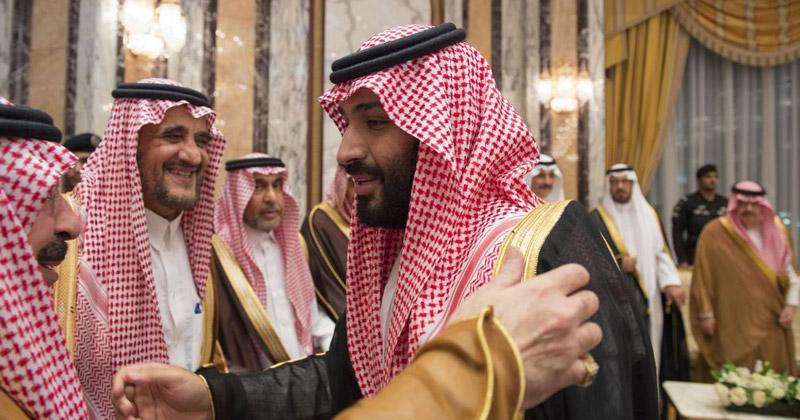
The Royal ‘Night of Long Knives’ executed by Crown Prince Mohammed bin Salman against his competitors or possible competitors seems to have claimed lives of two princes. According to reports, Prince Abdul Aziz, the youngest son of King Fahd was killed after a brief gunfight when he resisted his arrest on Sunday.
Earlier, Prince Mansour Bin Muqrin, a member of the House of Saud and son of former crown prince Prince Muqrin al-Saud, was killed in a helicopter crash near the border of Yemen. He was the appointed Advisor to the Custodian of the Two Holy Mosques.
Eleven princes, including sons of the deceased King Abdullah, more than thirty former and acting ministers as well as the heads of three major TV stations were taken into custody or put under house arrest. The National Guard Commander Prince Mitieb Bin Abdullah was relieved from his post and replaced with Prince Khalid Bin Abdulaziz al Muqrin. The National Guard was the last intelligence and security power centre held by the Abdullah branch of the al-Saud family.
One of the arrested persons is Prince Al-Waleed Bin Talal, allegedly the sixth richest man in the world. He has an estimated net worth between $18 and $32 billion. Al-Waleed had publicly clashed with U.S. President Donald Trump by calling him a ‘disgrace’.
An earlier purge in July had dethroned the former Crown Prince Nayef and replaced him with the young Mohammad Bin-Salman. Then the Nayef branch of the al-Saud family was removed from all power centres.
This goes against the consensus model that had been the foundation of the Saudi family rule over the last century. Traditionally the power is handed down from brothers to brothers, and now with Mohammed Bin-Salman set to be the next ruler, this model has been broken.
The crackdown by Bin-Salman is a pre-emptive coup. News has been swirling for months about a coup against him in the making. According to Pepe Escobar, a political columnist:
The story starts with secret deliberations in 2014 about a possible “removal” of the then King Abdullah. But “the dissolution of the royal family would lead to the breaking apart of tribal loyalties and the country splitting into three parts. It would be more difficult to secure the oil, and the broken institutions whatever they were should be maintained to avoid chaos.” Instead, a decision was reached to get rid of Prince Bandar bin Sultan – then actively coddling Salafi-jihadis in Syria – and replace the control of the security apparatus with Mohammed bin Nayef.
The succession of Abdullah proceeded smoothly and King Salman took over the rule. Power was shared between three main clans: King Salman (and his beloved son Prince Mohammed); the son of Prince Nayef (the other Prince Mohammed), and finally the son of the dead king (Prince Miteb, commander of the National Guard). In practice, Salman let his son run the show, according to reports.
The political drama in the Kingdom seems to have relations beyond the borders of the state and is the prelude to a larger external venture. According to reports the earlier forced resignation of the Lebanese Prime Minister Saad al-Hariri is probably connected to the royal crackdown in the Saudi Arabia.
At the same time as the internal purges proceed, the crown Prince implements an extremely aggressive foreign policy agenda targeted at Iran and its allies. Having been defeated in Iraq and Syria and at stalemate in Qatar and Yemen the Saudi ruler decided to try his luck in Lebanon.
In the same night a missile probably launched by Houthi forces from Yemen hit near the airport of the Saudi capital Riyadh. According to sources, such missile attacks are in retaliation for the intense two years of Saudi bombing of Yemen which by now probably killed more than a hundred-thousand people. While this seems to have no relationship to the crackdowns, it added to the general anti-Iranian narrative the Saudis propagate.
The Saudis claim that Yemeni missiles are of Iranian origin and launched by Iranian specialists. Iran denies this. Weapon experts at IHS Janes refute that claim that Burkan-2 missile launched by Houthis is Scud derivative and is unlike variants made by Iran or DPRK.
The shrinking role of Saudi kingdom in the region coupled with internal instabilities had shaken the base of King Salman and his son. The weakening economy, internal differences, and a radically tumbling popularity of the royal family seems to have forced the crown prince to clean his way up the throne. The anti-Iran and anti-Hezbollah rhetoric is what Mohammed bin Salman thinks will help him to regain the waning power in the region.
Get the latest reports & analysis with people's perspective on Protests, movements & deep analytical videos, discussions of the current affairs in your Telegram app. Subscribe to NewsClick's Telegram channel & get Real-Time updates on stories, as they get published on our website.










